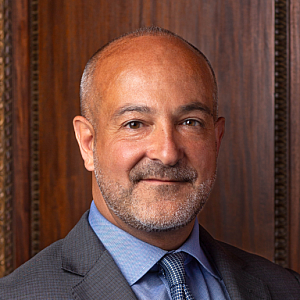The Coming Revolution: Equity in the Age of AI
We are on the cusp of what promises to be a tech-driven revolution in medicine, with AI and gene editing heralding previously unimaginable advancements in care and novel therapies. AI algorithms are already sifting through vast health records to identify high-risk patients for early intervention. The first CRISPR-generated medicine arrived in 2023 for sickle cell disease, which disproportionately impacts Black communities. But will such breakthroughs and advancements be the exception or the norm? How do we ensure that new AI-fueled developments don’t instead replicate old biases and create new health disparities, leaving vulnerable patients overlooked or denied care? Can these new technologies be developed in ways that improve care and narrow gaps, rather than deepen them? Biased training data, underrepresentation in clinical trials, and the digital divide in health technology all pose formidable challenges. Join us for a forward-looking and thought-provoking conversation about how we keep equity front and center in an era of rapid technological advances. Reporters will gain story ideas, insights and crucial context for covering the coming changes that will remake health care.
This webinar is free and made possible by The Commonwealth Fund and The California Endowment.
Panelists

Dr. Joseph R. Betancourt is the president of the Commonwealth Fund. He formerly served as the senior vice president for Equity and Community Health at Massachusetts General Hospital (MGH) and as founding director of the Disparities Solutions Center. Betancourt is an associate professor of medicine at Harvard Medical School and a board-certified internist who provides primary care to a large Spanish-speaking and minority patient panel. He earned his M.D. from the University of Medicine and Dentistry of New Jersey and completed an internal medicine residency at New York Hospital–Cornell Medical Center. He also holds an M.P.H. in health policy and management from the Harvard T.H. Chan School of Public Health. An author of nearly 90 peer-reviewed articles, Betancourt has served on several Institute of Medicine committees, including the group that produced the seminal report, “Unequal Treatment: Confronting Racial/Ethnic Disparities in Health Care. He is a member of the National Academy of Medicine.

Dr. Tina Hernandez-Boussard is a professor of medicine at Stanford University who specializes in biomedical data and informatics and surgery, with additional roles in epidemiology and population health. She also serves as Stanford’s Associate Dean of Research. Her work focuses on the intersection of informatics and population health, promoting responsible AI across populations. She utilizes diverse, multimodal data to develop rigorous criteria and guidelines that steer the development of responsible AI, aiming to bridge gaps in health care and enhance patient outcomes. Hernandez-Boussard advocates for practices that ensure the benefits of digital technologies are realized across all segments of society.

Katie Palmer is a health tech correspondent at STAT covering telehealth, clinical artificial intelligence, and the health data economy — with an emphasis on the impacts of digital health care for patients, providers, and businesses. She previously led health and science coverage as a senior editor at Wired and as an editor at Quartz. As a 2018 John S. Knight Journalism Fellow at Stanford, she investigated conflict of interest nondisclosure in research using computer-assisted reporting. With Usha Lee McFarling, her STAT series on the role of race in clinical algorithms, “Embedded Bias,” won the 2025 Edward R. Murrow award for Excellence in Diversity, Equity, and Inclusion.
Suggested resources
"Embedded Bias," by Katie Palmer and Usha Lee McFarling, STAT
“Dissecting racial bias in an algorithm used to manage the health of populations,” by Ziad Obermeyer et al., Science
“Hidden in Plain Sight — Reconsidering the Use of Race Correction in Clinical Algorithms,” by Darshali A. Vyas, M.D., The New England Journal of Medicine
“Pursuing Equity With Artificial Intelligence in Health Care,” by Kevin B. Johnson et al., JAMA Health Forum
“Mitigating Racial and Ethnic Bias in Clinical Algorithms: A Scoping Review,” by Michael P. Cary et al., Health Affairs
“Promoting Equity In Clinical Decision Making: Dismantling Race-Based Medicine,” by Tina Hernandez-Boussard et al., Health Affairs (2023)
“Guiding Principles to Address the Impact of Algorithm Bias on Racial and Ethnic Disparities in Health and Health Care,” by Marshall H. Chin et al., JAMA Network Open (2023)
“The AI life cycle: a holistic approach to creating ethical AI for health decisions,” by Tina Hernandez-Boussard et al., Nature Medicine (2022)
“Reporting of demographic data and representativeness in machine learning models using electronic health records,” by Tina Hernandez-Boussard et al., JAMIA (2020)
“Developing reporting standards for artificial intelligence in health care,” by Tina Hernandez-Boussard, et al., JAMIA
“Cell and Gene Therapies — Improving Access and Outcomes for Medicare and Medicaid Beneficiaries,” by Joseph S. Ross, New England Journal of Medicine
“FDA approves two sickle cell therapies, including first CRISPR medicine,” by Carolyn Y. Johnson, The Washington Post
“With CRISPR cures on horizon, sickle cell patients ask hard questions about who can access them,” by Megan Molteni, STAT
“‘Data Silence' Holds High Stakes for People’s Health,” by The Commonwealth Fund
Rethinking Race in Clinical Algorithms by Council of Medical Specialty Societies
VIDEO: “Unwinding Race: Better Research for Better Health,” by Council of Medical Specialty Societies
